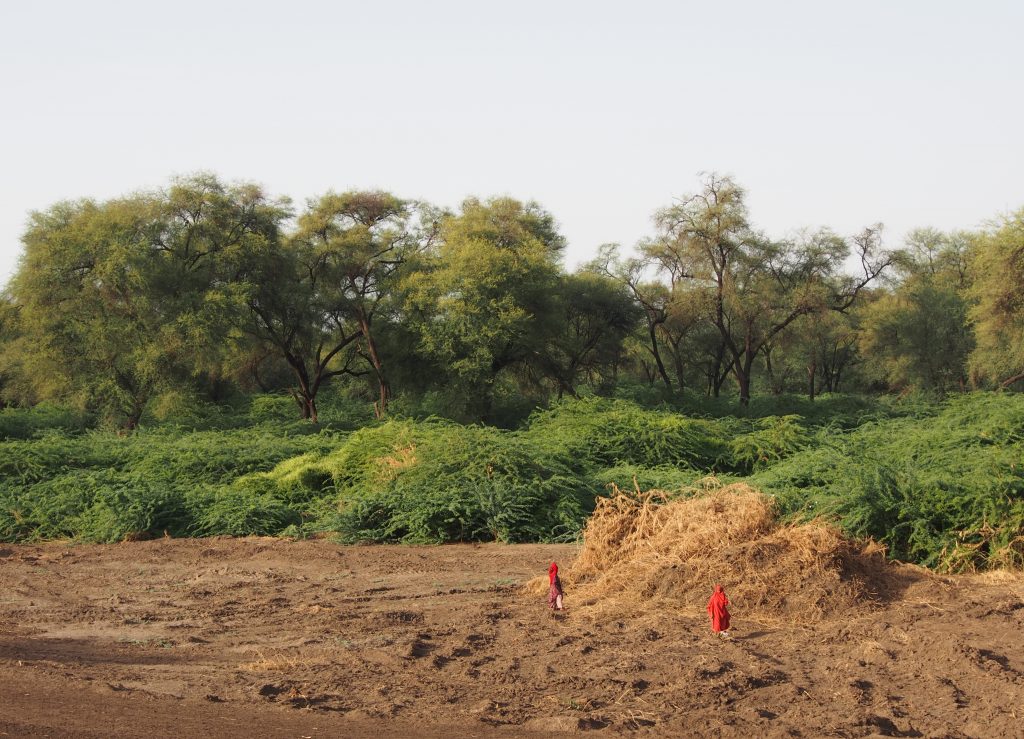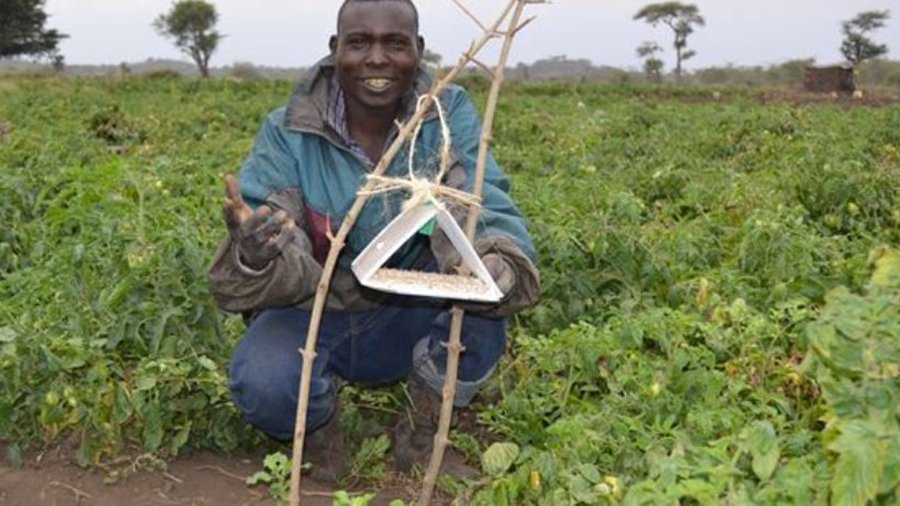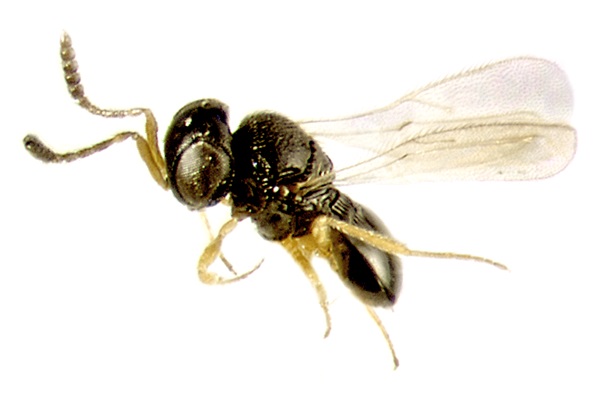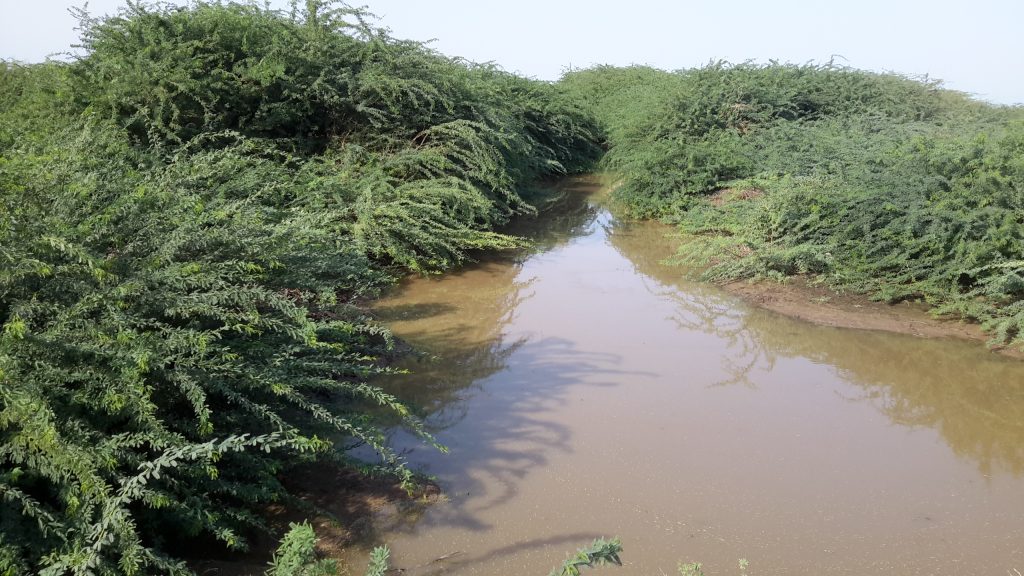CABI publishes recommendations to fight scourge of parthenium weed in Central West Asia
CABI has published a new evidence note highlighting a list of recommendations to fight the highly-invasive parthenium weed which can have significant impacts on human health, the environment, livestock production and health and crop yields. The report ‘Parthenium: Impacts and coping strategies in Central West Asia’, states that the aggressively-spreading weed, now classified as a ‘superior…
New study reveals the massive ecological and economic impacts of woody weed invasion in Ethiopia
CABI scientists have revealed the massive ecological and economic impacts that the invasive alien tree Prosopis juliflora has had across the Afar Region of north eastern Ethiopia. Dr Urs Schaffner, who is supervising lead author Mr Hailu Shiferaw for his PhD studies, contributed to the Science of The Total Environment published research which shows that the…
CABI-led study recommends improvements to how impacts of Non-Native Species are assessed
CABI has led an international team of Non-Native Species (NNS) specialists who have compiled a list of recommendations to improve the way in which the impact of a range of invasive pests – such as the tomato leaf miner Tuta absoluta – are assessed, potentially helping towards ensuring greater global food security.
Scientists confirm first report of egg parasitoid in Africa to fight devastating fall armyworm
A group of scientists have confirmed the first report of an egg parasitoid Telenomus remus in Africa which could prove an important biological weapon in the fight against the devastating fall armyworm (Spodoptera frugiperda) that threatens the food security of more than 200 million people.
CABI shares expertise on rubber tree blight in major new Amazon documentary series
CABI is today sharing its expertise on the devastating rubber tree blight disease – that could severely impact upon the world’s rubber production for essential items including tyres, shoes and the seals on a multitude of household and industrial items– as part of a major new Amazon documentary series now streaming.
CABI helps map ferocious speed and likely cause of woody weed spread across Ethiopia
CABI scientists have helped map the ferocious speed and probable cause of a devastating spread of the invasive alien tree Prosopis juliflora (Swartz DC) across an area equivalent to half of neighbouring Djibouti in the Afar Region of north eastern Ethiopia. Dr Urs Schaffner, who is supervising lead author Hailu Shiferaw for his PhD studies,…
CABI shares expertise at workshop concerned with threat of invasive species to Gibraltar
Dr Pablo González-Moreno, one of CABI’s senior researchers with expertise in invasive plant ecology, has joined a workshop of international scientists concerned with investigating the invasive non-native species that pose the greatest threat to Gibraltar’s terrestrial and marine environments.
CABI scientists are leading the fight to control one of the UK’s most invasive weeds – Himalayan balsam
CABI experts in the field of classical biological control are leading the fight to manage one of the UK’s most invasive weeds – Himalayan balsam – thanks to the nationwide release of the rust fungus Puccinia komarovii var. glanduliferae. Dr Carol Ellison, who has over 30 years’ experience of the biological control of weeds using…
CABI updates International Soft Fruit Conference on fight against devastating invasive fruit fly
CABI scientist Dr Lukas Seehausen has updated delegates at the International Soft Fruit Conference in s-Hertogenbosch, in the Netherlands, on the very latest research in the fight against the devasting fruit fly Drosophila suzukii. Dr Seehausen, a research scientist in risk analysis and invasion ecology based at CABI’s Swiss centre in Delémont, said a biological control agent – the parasitoid Ganaspis…
CABI scientist helps identify alien species that present greatest threat to European biodiversity
CABI scientist Dr Marc Kenis has joined an international team of researchers who have identified 66 alien species – not yet established in the European Union – that pose the greatest threat to European biodiversity and ecosystems as outlined in a new paper published today in the journal Global Change Biology.










